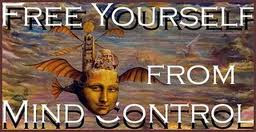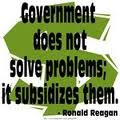My friends and I have been discussing the differences between 'classical liberalism' and the ideology of modern day 'liberals'. It is amazing to see how many people confuse the two and refuse to accept the fact that modern day 'liberals' are more ideologically akin to 'socialists' ... as we watch the Canadian 'Liberal' party regroup and rebuild, and as we consider our own 'Liberal' government in Quebec it is important to understand what we are talking about. Here then is some basic research found on 'classical liberalism' to further our efforts to become 'enlightened and engaged' citizens ...
Stanford Encyclopaedia of Philosophy
'The heart of liberalism is the absence of coercion by others; consequently, the liberal state's commitment to protecting liberty is, essentially, the job of ensuring that citizens do not coerce each other without compelling justification.'
'It is easier to define libertarian ideas than to agree on a proper name for those ideas. The advocacy of individual liberty against state power has gone by many names over the century. In the first years of the 19th century the term liberalism came into widespread use in France and Spain and it soon spread, but by the end of that century the meaning had undergone a remarkable change. From the leave us alone philosophy, it had come to stand for advocacy of substantial government intervention in the marketplace.
Eventually people began to call the philosophy of individual rights, free markets and limited government - the philosophies of Locke, Smith and Jefferson - classical liberalism.
For classical liberals, liberty and private property are intimately related. From the eighteenth century up to today, classical liberals have insisted that an economic system based on private property is uniquely consistent with individual liberty, allowing each to live their life - including employing their labour and their capital - as they see fit.'
What it means to be a Libertarian by Charles Murray (Broadway Books, 1997)
'The American Founders created a society based on the belief that human happiness is intimately connected with personal freedom and responsibility. The twin pillars of the system they created were limits on the power of the central government and protection of individual rights. The belief that human happiness requires freedom and that freedom requires limited government.
The correct word for my view of the world is liberal. "Liberal" is the simplest anglicization of the Latin liber, and freedom is what classical liberalism is all about. The writers of the nineteenth century who expounded on this view were called liberals. In Continental Europe they still are . . . . But the words mean what people think they mean, and in the United States the unmodified term liberal now refers to the politics of an expansive government and the welfare state. The contemporary alternative is libertarian . . .'
Social Justice: Fraud or Fair Go? edited by Marlene Goldsmith, chapter by Andrew Norton (Menzies Research Centre, 1998)
'Classical liberals have a strong commitment to individual freedom. This commitment has, I believe, two sources. First there is commitment to freedom as an intrinsic value, as something important in itself. One idea here, an idea that finds support in the psychological literature, is that well-being is associated with a sense of being in control of one's life. Being coerced to do something, even if it is something you would do anyway if you had a choice, is bad for your well-being.
The second source of classical liberalism's commitment to individual freedom comes from its recognition of freedom as an instrumental value, as a value that leads to well-being even if it does not of itself provide it. This is mostly an argument about institutions, and especially the claim that the market, a device which coordinates action by facilitating voluntary interaction, has enormous power to enhance well-being. ...'
On Classical Liberalism and Libertarianism by Norman Barry (Macmillan, 1986)
'The classical liberals, from Hume and Smith through to Hayek, are concerned with the construction of a social order in which individual liberty can be maximised; social order and liberty do indeed develop conterminously. Principles and processes emerge (almost accidentally) from individual action but the individual is never abstracted from social processes, whether as a rights-bearer or, even, as a utility-bearer.'
Free to Choose by Milton Friedman (Penguin Books, 1981)
'Our society is what we make it. We can shape our institutions. Physical and human characteristics limit the alternatives available to us. But none prevent us, if we will, from building a society that relies primarily on voluntary cooperation to organise both economic and other activity, a society that preserves and expands human freedom, that keeps government in its place, keeping it our servant and not letting it become our master.'








